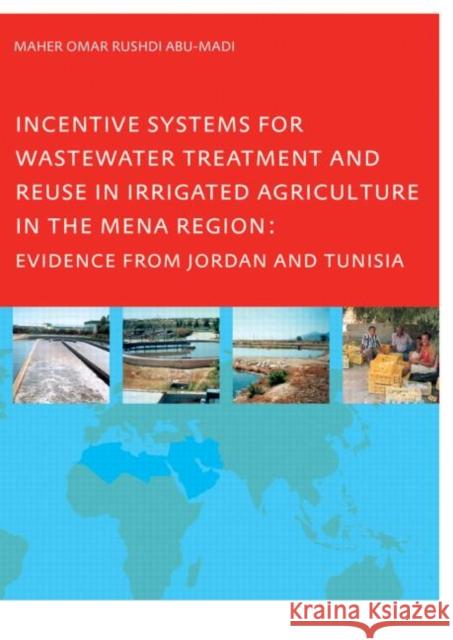Incentive Systems for Wastewater Treatment and Reuse in Irrigated Agriculture in the MENA Region, Evidence from Jordan and Tunisia » książka
Incentive Systems for Wastewater Treatment and Reuse in Irrigated Agriculture in the MENA Region, Evidence from Jordan and Tunisia
ISBN-13: 9789058097026 / Angielski / Miękka / 2004 / 248 str.
Incentive Systems for Wastewater Treatment and Reuse in Irrigated Agriculture in the MENA Region, Evidence from Jordan and Tunisia
ISBN-13: 9789058097026 / Angielski / Miękka / 2004 / 248 str.
(netto: 543,40 VAT: 5%)
Najniższa cena z 30 dni: 528,93 zł
ok. 16-18 dni roboczych.
Darmowa dostawa!
Fieldwork conducted in Jordan and Tunisia collected data on wastewater treatment, agricultural irrigation and crop marketing and consumption.
In the countries of the Middle East and Northern Africa, reclaimed wastewater is recognized as a non-conventional water resource. However, substandial amounts are still discharged into water courses without further treatment. The objective of this research was to analyse the technological, regulatory, institutional, financial and socio-cultural opportunities, seen as incentives; and the constraints, perceived as disincentives, which influence the adoption of wastewater treatment and reuse. Fieldwork was carried out in Jordan and Tunisia, countries which have made great strides in raising the proportion of re-used wastewater. Unexpectedly, farmers and customers proved well-prepared to use reclaimed water in irrigation, and to buy crops raised in the irrigated fields. Abu-Madi stresses the need for raising the price of freshwater, reflecting its true scarcity, thus creating a stronger incentive to utilise reclaimed wastewater.











